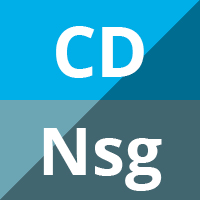
Corticosteroids for acute ischaemic stroke
Abstract Background The majority of strokes are due to cerebral infarction. Ischaemic cerebral tissue tends to develop cytotoxic oedema which, if the blood-brain barrier is disrupted, may be followed by vasogenic oedema. Large infarcts can develop life-threatening massive oedema. Early treatment with corticosteroids could theoretically help reduce both cytotoxic and vasogenic oedema and so improve […]

Anticoagulation for cerebral venous sinus thrombosis
Abstract Background Treatment of cerebral venous sinus thrombosis with anticoagulants has been controversial. Anticoagulants may prevent new venous infarcts, neurologic deterioration and pulmonary embolism but may also promote haemorrhages. Objectives To assess the effectiveness and safety of anticoagulant therapy in patients with confirmed cerebral venous sinus thrombosis. Search methods We searched the Cochrane Stroke Group […]

Statins for acute ischemic stroke
Abstract Background Statins have been claimed to be effective in the acute phase of ischemic stroke. The potential positive actions of statins during an acute cerebrovascular ischemic event are two-fold: a neuroprotective effect, limiting damage and improving recovery; and a preventative effect on early recurrence. Objectives To quantify the potential benefits and harms of statins […]

Edaravone for acute intracerebral haemorrhage
Abstract Background Intracerebral haemorrhage (ICH) causes significant morbidity and mortality. Prognosis for ICH patients is poor. Edaravone may be safe and effective in reducing the risk of early death and improving long-term functional outcomes in survivors. Objectives To assess the safety and efficacy of edaravone for acute ICH. Search methods We searched the Cochrane Stroke […]

Percutaneous vascular interventions for acute ischaemic stroke
Abstract Background Most disabling strokes are due to blockage of a large artery in the brain by a blood clot. Prompt removal of the clot with intra-arterial thrombolytic drugs or mechanical devices, or both, can restore blood flow before major brain damage has occurred, leading to improved recovery. However, these so-called percutaneous vascular interventions can […]

Vasoactive drugs for acute stroke
Abstract Background It is unclear whether blood pressure (BP) should be altered actively during the acute phase of stroke. Objectives To assess the effect of lowering or elevating BP in people with acute stroke, and the effect of different vasoactive drugs on BP in acute stroke. Search methods We searched the Cochrane Stroke Group Trials […]

Acanthopanax for acute ischaemic stroke
Abstract Background Acute ischaemic stroke is a common cause of death and disability. A number of studies published in China have shown that acanthopanax is beneficial for acute ischaemic stroke. Objectives To assess the efficacy and safety of acanthopanax in patients with acute ischaemic stroke. Search methods We searched the Cochrane Stroke Group Trials Register […]

Cooling therapy for acute stroke
Abstract Background Increased body temperatures are common in patients with acute stroke and are associated with poor outcome. In animal models of focal cerebral ischaemia, temperature-lowering therapy reduces infarct volume. In patients with acute stroke, lowering temperature may therefore improve outcome. This is an update of a Cochrane review first published in 1999. Objectives To […]

Surgery for primary supratentorial intracerebral haemorrhage
Abstract Background There is considerable international variation in the rate and indications of surgery for primary supratentorial intracerebral haematoma, reflecting the uncertainty about the effects of surgery. Recently, some large randomised trials have appeared in the literature but the controversy over its role continues. This is an update of a Cochrane review first published in […]

Dengzhanhua preparations for acute cerebral infarction
Abstract Background Dengzhanhua preparations are widely used in China. Many controlled trials have been undertaken to investigate the efficacy of dengzhanhua preparations in the treatment of acute cerebral infarction. Objectives To assess whether dengzhanhua preparations are effective and safe at improving outcomes in patients with acute cerebral infarction. Search methods We searched the Cochrane Stroke […]

